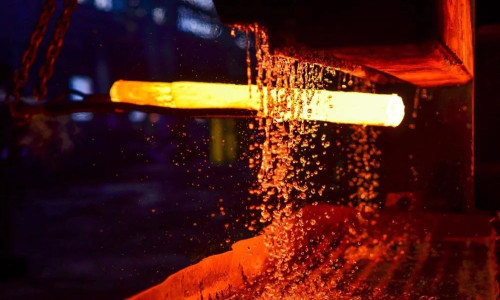What Is Heat Treatment And Why Is It Important In The Manufacturing Process?
What Is Heat Treatment And Why Is It Important In The Manufacturing Process?
Thermal treatment is one of the important industrial procedures used in various sectors to change the physical, chemical or mechanical properties of materials through controlled heating or cooling. In manufacturing settings, especially in the manufacturing and materials manufacturing industries, thermal treatment plays a key role in achieving specific material properties, improving product quality, and creating advanced materials suitable for a variety of applications.
Basic Requirements of Heat Treatment in Production:
Precise Temperature Control: The most important requirement in thermal processing is precise temperature control. Different materials and processes require specific heating or cooling rates, temperatures, and holding times to achieve the desired results. Advanced heating equipment such as ovens, industrial furnaces and special ovens are equipped with sophisticated controls to maintain precise temperature profiles.
Uniform heat distribution: Ensuring uniform heat distribution throughout the processed material is critical to achieving consistent and stable properties. Uneven heating or cooling can lead to material distortion, cracks, or unwanted microstructures that affect the integrity and performance of the final product. Optimized oven designs and controlled temperatures help achieve uniform heat distribution.
Optimal Time-Temperature Profiles: It is important to establish accurate time-temperature profiles prior to heat treatment. Heating and cooling rates, soaking times at certain temperatures and quenching processes significantly affect the properties of the material. For example, heating, quenching, and aging processes require specific heating and cooling cycles to achieve desired material properties such as hardness, strength, or ductility.
Controlled Atmospheres: Controlling the atmosphere surrounding the material is critical in certain thermal processing applications. Processes such as heat treatment, sintering, or annealing often require controllable environments, such as inert gas atmospheres or vacuum conditions, to prevent oxidation, decarburization, or other undesirable reactions that may affect material properties.
Material Handling and Fixing: Proper handling and fixing of materials within heat treatment equipment is very important. This process ensures even exposure to heating or cooling environments and prevents distortion or deformation during processing. Various devices and containers are used to hold parts or materials in place during heat setting or other heating processes.
Quality Control and Monitoring: Continuous monitoring of thermal processing parameters is essential to ensure consistency and quality. Real-time data collection and monitoring systems allow operators to monitor temperature, pressure, atmospheric composition and other critical variables, providing great advantages in making adjustments to maintain process integrity and product quality.
Safety and Compliance: Heat treatment often involves high temperatures and hazardous situations. Therefore, ensuring safety protocols, equipment maintenance, and compliance with industry standards and regulations are essential to prevent accidents, ensure worker safety, and meet quality assurance requirements.
Post-Processing Treatments: Some materials may require additional operations such as surface touches, coating applications, or stress relief after heat treatment to achieve the desired final properties and surface characteristics.
Meeting thermal processing requirements in manufacturing settings is critical to achieving desired material properties, improving product quality, and enabling the production of advanced materials critical to various industries. At Polad Techno, our focus on precision in temperature, time, atmosphere and material management ensures consistent and reliable conversion of materials, helping to increase the performance and functionality of the end product. Our large investments in technological innovation, continuous improvements and optimization of processes increase the efficiency, reliability and multi-functionality of thermal processing methods in modern production.

